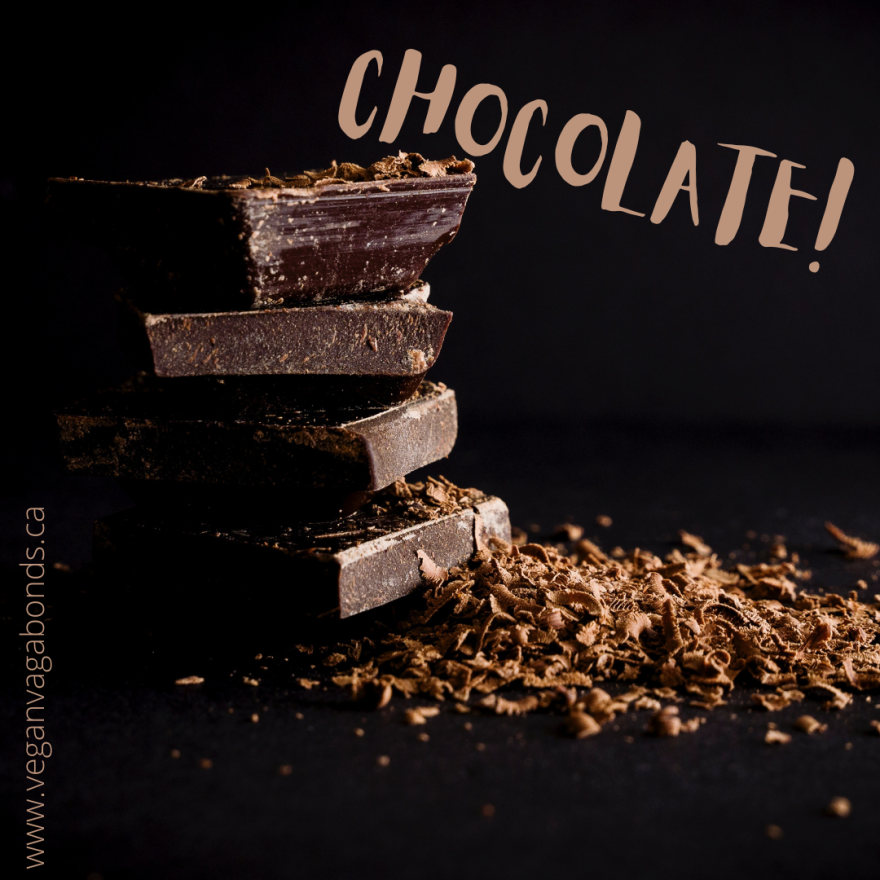A Dark Subject: Chocolate

“All you need is love. But a little chocolate now and then doesn’t hurt.” Charles M. Schultz
I used to be a great lover of milk chocolate, but then when I became a vegan, I realized that I would no longer be partaking of this enjoyable treat because of the milk ingredient. Sad face!
Did that mean that I would no longer get that glorious rush from a piece of chocolate, no longer have that velvety texture of a piece of chocolate in my mouth; no longer taste that wonderous cocoa?
No, it did not! Happy face!
It meant that I needed to up my game and go for chocolates that had a higher cocoa content. For vegans that means looking for at least 60%. (I usually go for 70%-85%.) Dark chocolate contains cocoa solids, cocoa butter (which is vegan) and sugar - the higher the cocoa content the less room for ingredients such as milk, but the more bitter your chocolate will be and the higher the caffeine level will be.
How is chocolate made?
Chocolate is made from cacao seeds. These seeds, or beans as we know them, go through a multitude of processes including fermentation, drying, roasting. After all this the bean is then crushed resulting in cacao pieces known as “nibs”. These nibs are ground producing a non-alcoholic liquor. This liquor is mixed with other ingredients – the cocoa solids, cocoa butter and sugar mentioned previously. To make cocoa powder, the liquor is pressed to remove most of the fat content.
Cacao vs Cocoa?
You may notice that the words “cacao” and “cocoa” have both been used – so what’s the difference? Technically, “cacao” is the term used for the seeds or beans; once the beans have been processed, they become “cocoa”. But this distinction is not always followed in the industry so the terms could be used interchangeably.
Is Eating Chocolate Healthy?
Dark chocolate is an excellent source of essential nutrients such as copper, manganese, iron and magnesium.
Various scientific studies have shown that dark chocolate may reduce LDL cholesterol, lower blood pressure and impact our mood.
Cocoa contains plant chemicals called flavanols which may help to protect the heart. It also contains polyphenols which are compounds that may play a role in immune health.
But it is best to remember that chocolate is high in calories and so a little goes a long way as it encourages satiety – it is best to aim for 1-2 ounces or 6 grams/day.
Things to Note:
Dutch-processed cocoa (which washes the beans with alkali to improve look and flavour) has less flavanols than natural dark chocolate.
Do not refrigerate chocolate. Keep it in a dry cool place in a tightly sealed container.
For a tasty snack, drizzle melted dark chocolate over fruit, oatmeal or your favourite vegan yogurt.
Just sayin' is all! All the best, Lou💚
Info gathered from numerous sources including: thespruceeats.com, healthline.com, nutritionadvance.com, hsph.harvard.edu
Lou-Anne Hooper
https://www.facebook.com/groups/newtoveganismneighbourhood
www.instagram.com/vegan.vagabonds1
For more information on my online course: “The Vegan Journey: A Beginner’s Pathway” please contact me at veganvagabonds@rogers.com
DISCLAIMER: None of the information in this document is a substitute or replacement for information that should be obtained by your medical practitioner and/or registered nutritionist. Please contact these persons for answers to your health and nutritional questions.
